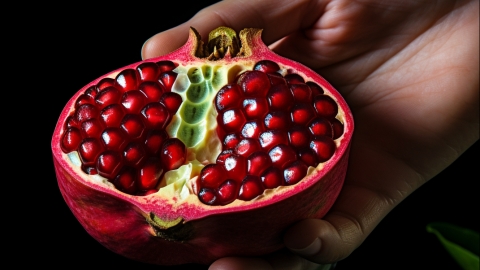Can you eat unripe pomegranate?
Generally, it is not recommended to consume pomegranates that are not fully ripe. The detailed explanation is as follows:

An unripe pomegranate has a very poor taste—its flesh is hard, sour, and astringent, lacking the sweet, juicy flavor of mature fruits, making it unpleasant to eat. From a nutritional perspective, beneficial components such as sugars and vitamins in unripe pomegranates have not fully developed, thus failing to provide sufficient nutrition. Moreover, unripe pomegranates contain high levels of tannic acid and alkaloids, which can irritate the oral mucosa and gastrointestinal tract, potentially causing oral discomfort, stomach pain, diarrhea, and other symptoms. These effects are especially noticeable in individuals with weak gastrointestinal function.
When selecting pomegranates, you can judge their ripeness by observing their appearance—choose those with bright red, glossy skins and a heavy feel. You may also gently squeeze the fruit; those that feel plump and elastic are usually ripe. If you accidentally consume a small amount of unripe pomegranate and experience mild discomfort, drinking more warm water may help relieve the symptoms. If the discomfort persists, seek medical attention promptly.





